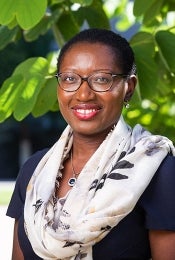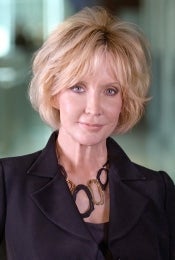The prospect of life in space is an endless topic to explore. And one that prompts some serious questions.
What is the impact of extended space travel on the human body? Can space travel bring life-threatening extraterrestrial contaminants back to Earth? Do we spend money on space exploration and research when there are problems on Earth to solve?
These questions and more will be tackled at an upcoming BioEthics Breakfast Club talk titled “Life in Space.” The event takes place from 9 to 10 a.m. on Wednesday, Jan. 17, in room 202 of the Life Sciences Center. Register here.
The breakfast club is associated with the university’s Life Science Ethics program.
"There are many ethical questions that arise as a result of the new and emerging ideas about what amounts to a space activity, how to balance competing concerns and interests in the use of the space environment, and the impacts of certain activities," said Timiebi Aganaba, an assistant professor at the School for the Future of Innovation in Society, who will be leading the discussion alongide Cheryl Nickerson, a professor at ASU’s School of Life Sciences.
Aganaba works in global space governance law and environmental advocacy, and Nickerson’s research is aimed at improving the health and well-being of astronauts.
Here, Nickerson shares more about her research and the upcoming event.
Editor's note: Answers have been edited for length and clarity.
Question: What prompted you to put on this event?
Answer: As the next steps in human space exploration are being planned to the moon and Mars with professional astronauts, and the rapidly growing commercial spaceflight industry transports civilian space travelers to low Earth orbit, it will be critical to ensure health and safety in this inherently unsafe environment.
We are currently in a renaissance period for spaceflight research that has tremendous potential for breakthrough advances in diverse biological and technological domains to benefit human health and habitation in space and life on Earth.
In our long-standing efforts to safely send humans into space, my team and I have been working closely with both NASA and commercial spaceflight groups to better understand and address the challenges faced by both professional astronauts and the new wave of civilian space travelers — the findings of which hold potential translational benefits for the public.
Q: Space exploration and ethics will be an important part of the discussion. What are the most common ethical questions related to space travel?
A: As with every audacious new venture undertaken by humans, an assessment of risk versus return must be cogently determined.
For example, the goal of many in the spaceflight community is to push toward a mission to Mars in search of life on other planets. The need to better understand our universe and the timeless question of “Are we alone?” is offset by the risk of forward contamination — taking microorganisms from Earth to Mars, limiting our ability to distinguish life on Mars — or back contamination — bringing potentially harmful microbes back to Earth.
Perhaps a more likely and potentially severe risk of such a mission is the limited knowledge that we currently have of the long-term effect of the deep space environment — including reduced gravity and increased radiation — on the mental and physical well-being of the astronauts.
In addition, an underrecognized but critically important ethical risk is the high public and political visibility of spaceflight research and the limited access to this platform, which creates a risk to the quality and progress of spaceflight biological and health research that can result from sensationalized media commentaries and unsubstantiated experimental conclusions in the published scientific literature.
Q: What has your research revealed about the impact of extended time in space on the human body?
A: Infectious disease is … an important risk for professional astronauts and civilian space travelers, whose immune systems are impacted in the space environment. My team’s microbiology, infectious disease and 3D tissue engineering research using spaceflight and spaceflight analogue platforms has pioneered novel approaches to benefit human health and habitat sustainability.
Our research has shown that unexpected microbial and human cellular and molecular responses occur in these environments. … Our findings are providing a foundation for the development of novel strategies to combat infectious disease in space and on Earth.
Q: The issue of contaminants is a chilling one. Why is this a concern? What kinds of contaminants might be brought back to the Earth?
A: The impact of reduced gravity and radiation on the terrestrial microbes that humans and their spacecraft take with them and return back to Earth during their excursions to other space destinations is very important to the health and performance of human spaceflight travelers, as changes in microorganisms during a spaceflight mission could impact the disease-causing ability of pathogens, integrity and function of the crew’s microbiome, and contamination of life support systems during deep space exploration.
This collective area of study is the focus of my team’s research.
More Local, national and global affairs
A record 9 ASU students awarded US Department of State’s Critical Language Scholarship
Nine Arizona State University students have been selected for the highly competitive Critical Language Scholarship, or CLS, program — an initiative of the U.S. Department of State that aims to…

Putting hope above hate at antisemitism conference
Hatred and hope were the overarching themes of the “Rising Above Together” conference hosted April 11 by the Anti-Defamation League in partnership with Arizona State University.Hatred: According to…

Arizona PBS is now free to stream for Prime Video viewers in the US
Arizona PBS is now available for streaming on Amazon Prime Video. A new partnership between PBS and Amazon brings the station’s primary, high-definition broadcast channel, along with the 24/7 PBS…




